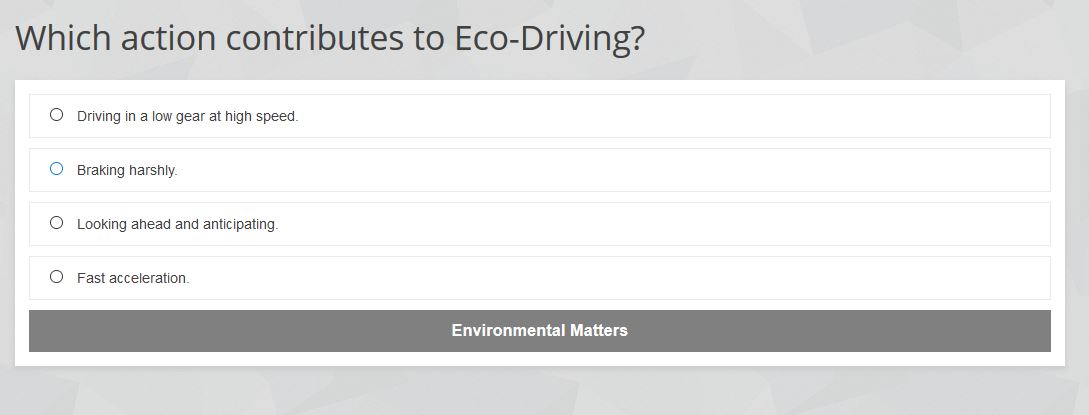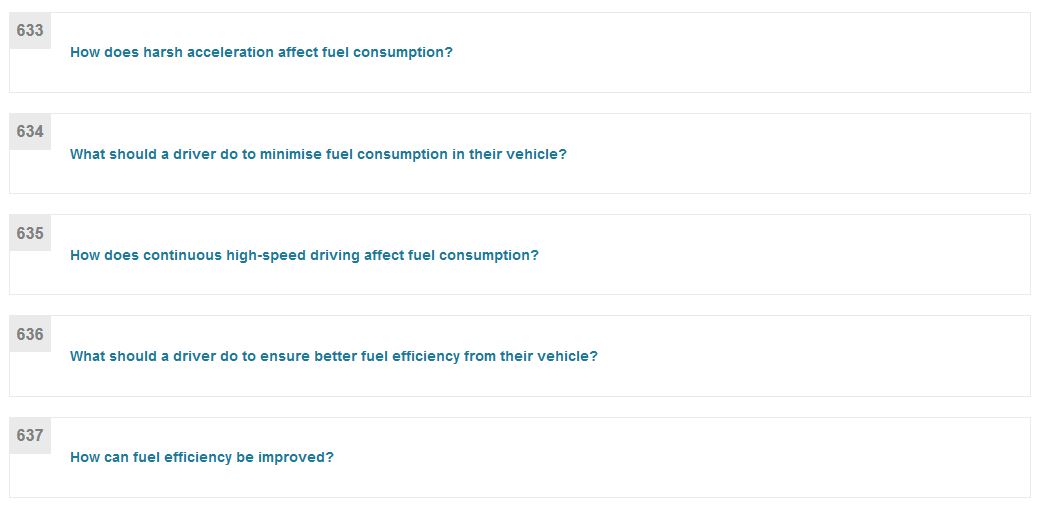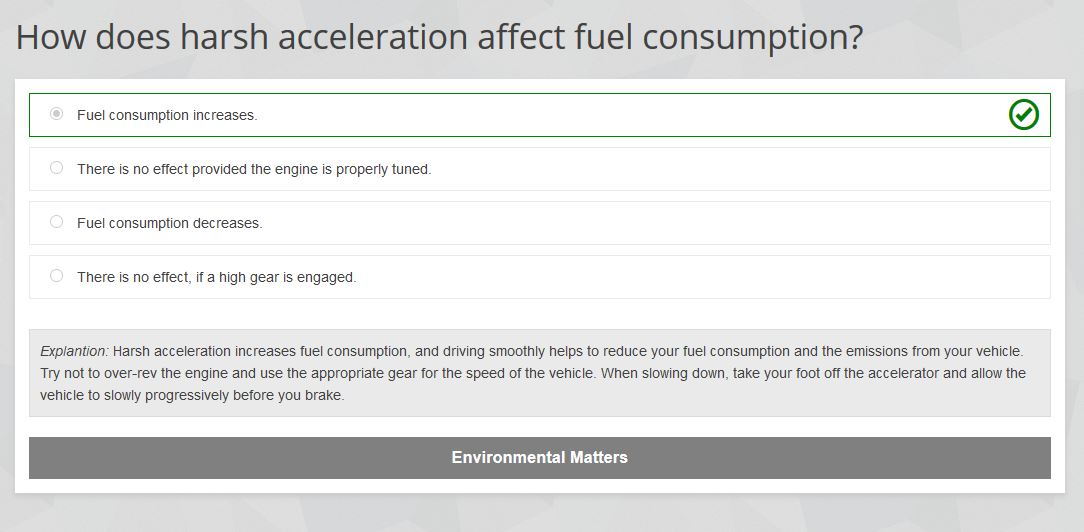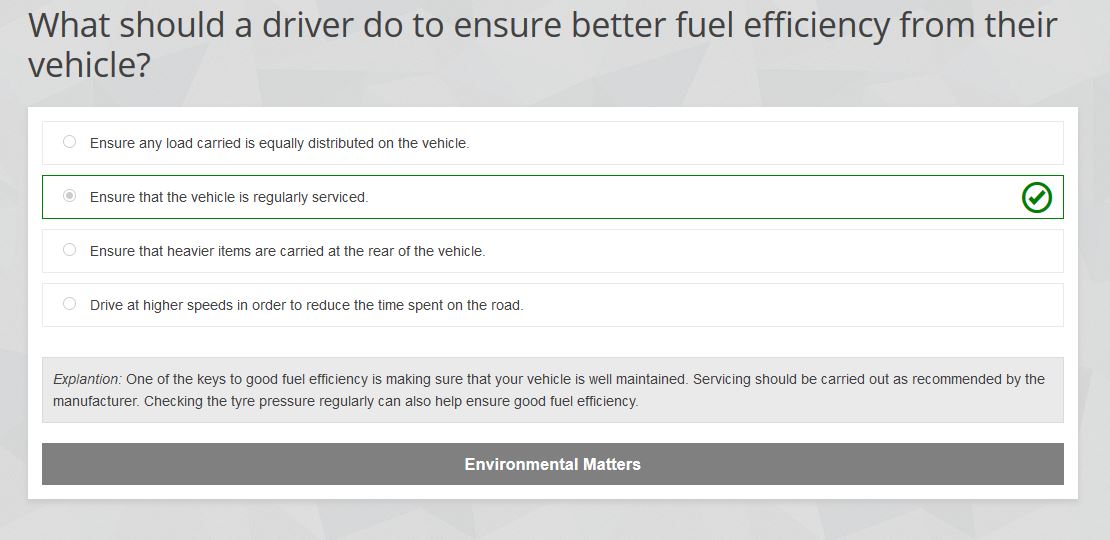
The importance of eco driving (fuel efficient driving) is today a matter of constant scrutiny, especially after the recent emissions news, for both environmental and legal reasons. These days it is no longer enough just to have good intentions with regards to ‘going green’, companies are now required to control their emissions and there is constant pressure to cut fuel costs (probably one of the highest sources of expense within fleets).
These are just some of the reasons why you should already have considered practising eco-driving in your fleet. But, in actual fact, for some time now eco-driving has been a component of the driving test—that’s why your drivers should already have practiced it, and there should be ongoing training on the topic. Environmental matters were introduced in different times throughout the EU countries between 2000-2010; examiners introduced eco-driving questions, like the one we see in the following example, taken from the online mock Irish Theory Test:

Here is an example of some of the eco-driving questions included in the test:

It might sound a little repetitive, but apparently it needs to be—not all companies or drivers are aware of how their driving style impacts on consumption and emissions. Would you be able to provide answers to some of these questions yourself?
Here are a couple of examples (with the answer):


Do you think your drivers would be able to answer these questions? And if they would be able, how can you make sure they are really practising eco-driving?
If you are one of our frequent readers, you might be more than familiar with how SynX can help you in this regard. From monitoring driver behaviour (and rapid acceleration) to keeping track of your consumption, from scheduling maintenance in order to keep vehicles serviced to recording walkaround checks, there is a lot SynX can do for you. Don’t forget eco-driving does not just mean lower fuel consumption for your fleet, but safer driving all round, and with it, numerous additional benefits.
Contact us if you want to see how you can improve your fuel consumption and decrease your carbon footprint.









